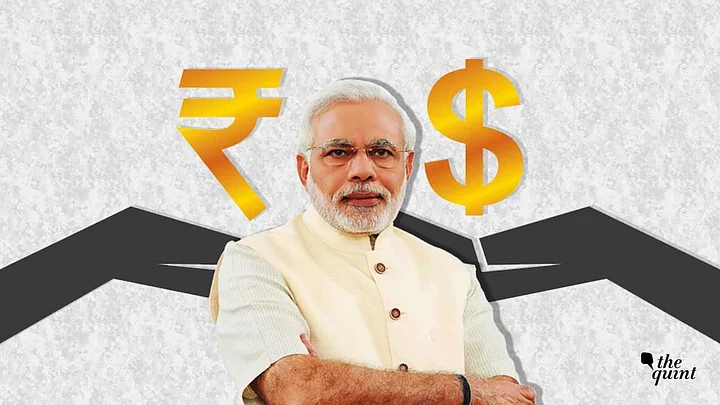What will be your reaction if you get to know that the sector you had invested in – and invested a very large sum in it at that – only a few months ago, is going to take a hit of nearly Rs 40,000 crore because of subsequent policy tweaks?
Other than plain disgust, you will likely counsel your fellow investors not to pledge big money in a country that is earning the dubious distinction of having an inconsistent policy regime.
Just a few months after global retail giant Walmart acquired 77 percent equity of Flipkart, a leading online marketplace player in the country, with an investment of $16 billion, the government issued a notification for e-retailers that “restricts marketplaces, operators and their group companies from holding equity in sellers on their platforms, caps the percentage procurement for sellers from e-marketplaces, and puts curbs on exclusive partnership with brands or providing favourable services to a few vendors.”
Quoting a Crisil report, an article in The Economic Times says “Online retailers could take a Rs 35,000-40,000-crore hit on their FY20 revenues to comply with the revised foreign investment policy.”
The policy tweak happened perhaps to please traders and offline retailers, considered to be core supporters of the ruling Bharatiya Janata Party, who were hit hard by the twin impact of demonetisation and the Goods and Services Tax.
You please some and adversely impact many others, including a growing class of consumers who were used to getting products at discounted prices!
Policy Tweaks That Can Potentially Scare Investors Away
No wonder influential daily The New York Times ran a report following the notification that said, “Prime Minister Narendra Modi of India initially courted foreign companies to invest more in the country after his 2014 election victory, but his administration has turned protectionist as his party’s re-election prospects have dimmed in recent months. Mr Modi has increasingly sought to bolster Indian firms and curb foreign ones through new policies, including one that requires foreign companies like Visa, Mastercard and American Express to store all data about Indians on computers inside the country. The government has also declared its intention to impose tough new rules on the technology industry.”
FDI Inflow Has Been Tepid After Peaking in 2015-16
Incidentally, the inflow of foreign direct investment has followed the ebb and flow of the inconsistent policy regime.
Net portfolio investment, also known as hot money and a key driver of equity and debt markets, has followed a similar pattern in recent years.
FPIs invested the most in 2014-15 and the inflow has been inconsistent in subsequent years. And the FPI outflow in 2018 was one of the highest in almost a decade.
Given the way things have panned out in the last four years, the prime minister will have a tough time convincing top honchos of sovereign wealth funds and pension funds to include India in their active investment list, while addressing them at the Vibrant Gujarat Summit later this week.
Sovereign wealth funds are estimated to have assets under management in excess of $7 trillion. And pension funds of advanced countries alone are estimated to have an asset base in excess of $28 trillion.
Given the size of their asset base, they are considered among the most influential set of global investors. There is therefore a big opportunity to please them and convince them to set aside a slice of their massive asset base for our country.
How Will the PM Convince Top Honchos of Sovereign Funds & Pension Funds to Invest in India?
As per the reports, the prime minister will address the top fund managers and apprise them of the initiatives taken by his government in the last four years.
He sure is likely to talk about India’s quantum jump in the World Bank’s ease of doing business ranking. What he is unlikely to talk about is massive fall in domestic investment in recent years despite improved ranking.
According to a Centre for Monitoring Indian Economy (CMIE) report, “New investments worth a trillion rupees were proposed during the quarter ended December 2018. This is less than half the value of proposals made in the September 2018 quarter and even the corresponding quarter of 2017. As additional information flows in during the coming weeks, we expect the current estimate of a trillion rupees to rise to about Rs.1.4 trillion. But even at this revised level, new investments during the quarter ended December 2018 would be among the lowest recorded in well over a decade. The recent decline in new investment proposals began around the quarter of June 2015.”
Incidentally, the fall in investment proposal has coincided with rise in India’s ease of doing business ranking!
What it shows is that investors do not like jhatkas (policy shocks) – from mild course correction to disruptive policies like demonetisation. They may bring political dividend, but jhatkas scare investors away. That has precisely been the case in recent years. Will the prime minister assure potential foreign investors that he won’t allow something like that to happen again if he is serious about wooing them?
The PM will also have to assure investors that once aggressively pushed and now conveniently forgotten reforms – land acquisition, labour reforms and government-owned banks’ reforms, to name few – will be actively pushed in earnest now.
(At The Quint, we question everything. Play an active role in shaping our journalism by becoming a member today.)
